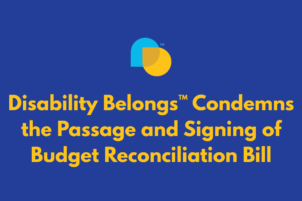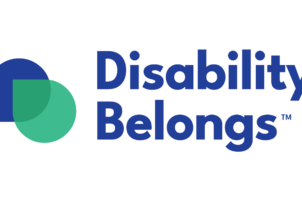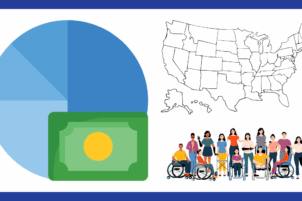“Your employees are the experts on their own needs. It’s time to listen.”
 Disability is a set of barriers that society places on people whose bodies work differently. While disability is an extension of the human experience and spectrum of human abilities, the stigma and negative expectations of the disabled body contribute to othering. Inclusive employer policies are an important aspect of the rehabilitation of disabled people into the workforce. Many disabled people are able and willing to work but face unsurmountable stigma and non-inclusive policies from employers.
Disability is a set of barriers that society places on people whose bodies work differently. While disability is an extension of the human experience and spectrum of human abilities, the stigma and negative expectations of the disabled body contribute to othering. Inclusive employer policies are an important aspect of the rehabilitation of disabled people into the workforce. Many disabled people are able and willing to work but face unsurmountable stigma and non-inclusive policies from employers.
In the English language, disability represents a set of impairments that are associated with a loss of social status – a perceived deviance of the body and its functions. The social model of disability describes the stigma faced by disabled individuals as profoundly linked to society’s expectations of the body. Alongside expectations of the body, stigma is associated with the inability to fulfill social norms. In individualist cultures, this can result in greater concern over an individual’s ability to contribute. Therefore, individualist cultures are going to place a larger emphasis on productivity expectations for the disabled body.
Since 2020, more disabled Americans are employed than ever before. This may be attributed to the labor shortage, as the barrier to enter the workforce is at an all-time low. It may also be a benefit of the increased flexibility of employers, especially regarding remote work.
To best serve these employees, employers should view people with disabilities holistically. The language used by HR departments and employers needs to be flexible as well as inclusive. Everyone comes from their own situation and may have differing perspectives on disability status. For example, older people may not consider themselves to have a disability, nor might those with transient conditions. However, they can both benefit from disability accommodations and accessible programming. Disability policies and the language involved need to be inherently flexible with enough nuance to support a wide variety of conditions.
A truly inclusive workplace is a flexible workplace. Therefore, accommodations should be available for all those who need them, rather than those who use the same linguistic category of identity. Engaging your employees on matters that are going to affect their well-being is always going to be an effective strategy. It benefits everyone when decisions are made with the involvement of affected groups, rather than following a prescribed policy that was created anonymously. Your employees are the experts on their own needs. It’s time to listen.







